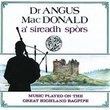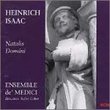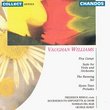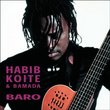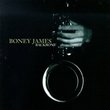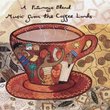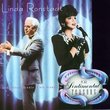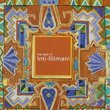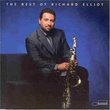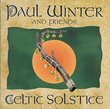| All Artists: Zoltan And His Gypsy Ensemble Title: Gypsy Music From Hungary And Romania Members Wishing: 0 Total Copies: 1 Label: Legacy International Release Date: 11/11/2009 Genres: International Music, Pop Styles: Europe, Continental Europe, Eastern Europe Number of Discs: 1 SwapaCD Credits: 1 UPC: 076637033025 |
Search - Zoltan And His Gypsy Ensemble :: Gypsy Music From Hungary And Romania
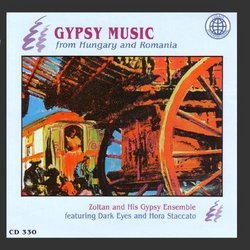 | Zoltan And His Gypsy Ensemble Gypsy Music From Hungary And Romania Genres: International Music, Pop
Gypsy Music From Hungary And Romania by Zoltan And His Gypsy Ensemble ![header=[] body=[This CD is available to be requested as disc only.]](/images/attributes/disc.png?v=a4e11020) ![header=[] body=[This CD is available to be requested with the disc and back insert.]](/images/attributes/disc_back.png?v=a4e11020) ![header=[] body=[This CD is available to be requested with the disc and front insert.]](/images/attributes/disc_front.png?v=a4e11020) ![header=[] body=[This CD is available to be requested with the disc, front and back inserts.]](/images/attributes/disc_front_back.png?v=a4e11020) |
Larger Image |
CD DetailsSynopsis
Album Description Gypsy Music From Hungary And Romania by Zoltan And His Gypsy Ensemble Similar CDsSimilarly Requested CDs
|
CD ReviewsGood but not the greatest. Mercedes Alba | Costa de la Luz | 09/08/2003 (3 out of 5 stars) "With respect to the reviewers who loved this cd and the one who didn't like it, I must disagree with both sides and cast my vote in the middle. It is neither a great cd nor a bad one. This type of music of the Romani orchestra developed in the 19th century and reached its zenith in the decades prior to WWll in the 20th century. This cd however does not represent the style at its best, but it is still a good example. It lacks the power, brilliance and spirit of the great orchestras of old, notably those of Jean Gulesco, Kalman Emmerich, Grigoras Dinicu, Rozzi Rethy, D' Arpad Kovacs, Bela Berkes, Petrica Marin and Flores Lakatos, to name a few. Though the title indicates this is music of Hungary and Romania, the style to my ears is of the Hungarian orchestra, and two of the numbers are actually old Russian Romani folk songs; "Dark Eyes" and "Two Guitars". The orchestration of these two songs do not match the Niza Codolban or the Sacha Petroff Orchestras of old. Unfortunately, no information is given about this orchestra of Zoltan's. No names of musicians are given, no dates of recordings given and no information about the origin of the orchestra. Even the oldest recordings of the 1900's honor the family name of the Primas (lead violin, who was often the band leader). Zoltan is a forename and that is the only name given on this disc. Granted, some Romanies would use a stage name when dealing with non-Romanies, to keep their Romani names within their community. Perhaps this is the case with Zoltan. Today it is customary to honor the family names of the primas and band leader, if not all of the musicians. The cd notes say "Like most all Gypsies, Zoltan's wagon has roamed through the many lands of Europe...". Most all Romanies today are either settled or only semi-nomadic. The days of the great kumpanias criss-crossing Europe in caravans are gone forever as a result of WWll and the forced assimilation programs of the postwar '40's, 50's and 60's. So these are either old recordings or the notes are very innaccurate. The notes also tell us to "join Zoltan and his Gypsy ensemble at a campfire at the foot of a great mountain and enjoy..." (the music). This is not the music of the campfires. The campfire music was a very different type, played by Romanies for themselves, mostly singing with little if any instrumentation. This is orchestrated music for the restaurants, halls and pubs of Europe. My family vitsa extends back to the Lautari of Wallachia and Bessarabia, though I am now semi-settled and studying music in America. I have a family photo of my great grandparents standing by a wagon with a cimbalom, concert harp and bass violin strapped on. But I doubt that these instruments were often brought out and set up with an orchestra around a campfire (complete with a grand piano as the cd would suggest). But this is not my main concern about this cd. My concern is that there is no official copyright notice and no musicians' names are given. It appears to be a work in the public domain (notwithstanding the warnings about reproduction, etc. that bear no legal weight without a copyright notice and registration). This would suggest that no musicians are being paid for the sale of this cd. Even for the very early recordings that are in the public domain, when re-released on cd the courtesy is given to the musicians by honoring the family names of at least the primas and/or band leaders. I would recommend instead of this cd the recent recordings of Roby Lakatos and his Orchestra on the Deutsche Grammophon label, or those of Sandor Deki Lakatos and his Orchestra on the Hungaroton label. The music is better, and there is more of an indication that the musicians are being fairly paid. For archival recordings try "Tziganes: Paris-Berlin-Budapest, 1910-1935" on the Fremeaux & Associes label." Gypsy Music from Hungary & Romania Mercedes Alba | 08/23/2000 (5 out of 5 stars) "When I began looking for gypsy music I had no idea that there were so many different types, but when I heard this CD, I knew that this was exactly what I was looking for. Although some of the songs sound quite joyous, it was the more wistful, plaintive melodies that really went to my heart." What do we mean by "Gypsy Music"?: Excellent CD Mercedes Alba | 10/15/2003 (4 out of 5 stars) "Right off the bat, a distinction should be made between the music of the Gypsies (that is music played by Roma for Roma) and the music played by Gypsies (music played by Roma for others). This album is a fine example of the of the latter style as it was played 50 or so years ago. The CD includes many standard songs that were played by Roma ensembles in the cities of Europe and North America and that were beloved by their audiences. To dismiss this music as so much "restaurant music" strikes me as racist, at best. This is music that has has great artistry and feeling and into which the performers invested great artistic effort. Much of repetoire represents a close colaboration between Roma and non-Roma. It also reflects the way in which popular songs of the day were ( and are) adapted by Gypsy musicians and given a distintive performance style. Furthermore, the performances maintain a certain "rawness" that I feel is lost in the virtuosity of recordings of "ciganyzene" from Hungary made in the 25 years.The music represents the interaction of several cultures - music from Hungary, Russia, Romania, Moldavia and England(yes, Noel Coward's "Ziguener"!). To discount the value in this music is to relegate the Roma ONLY to those songs sung around the campfire and played by amateurs (a music that I also happen to like, by the way).My major criticism of this CD is that it is entirely lacking in meaningful program notes. The names of the performers, date and name of the issue of these recordings would be helpful. Clearly these recordings were made before the advent of modern recording techniques, but that is about all we can tell."
|

 Track Listings (10) - Disc #1
Track Listings (10) - Disc #1